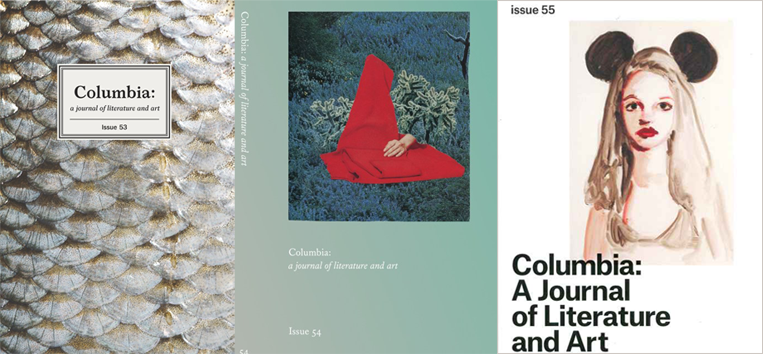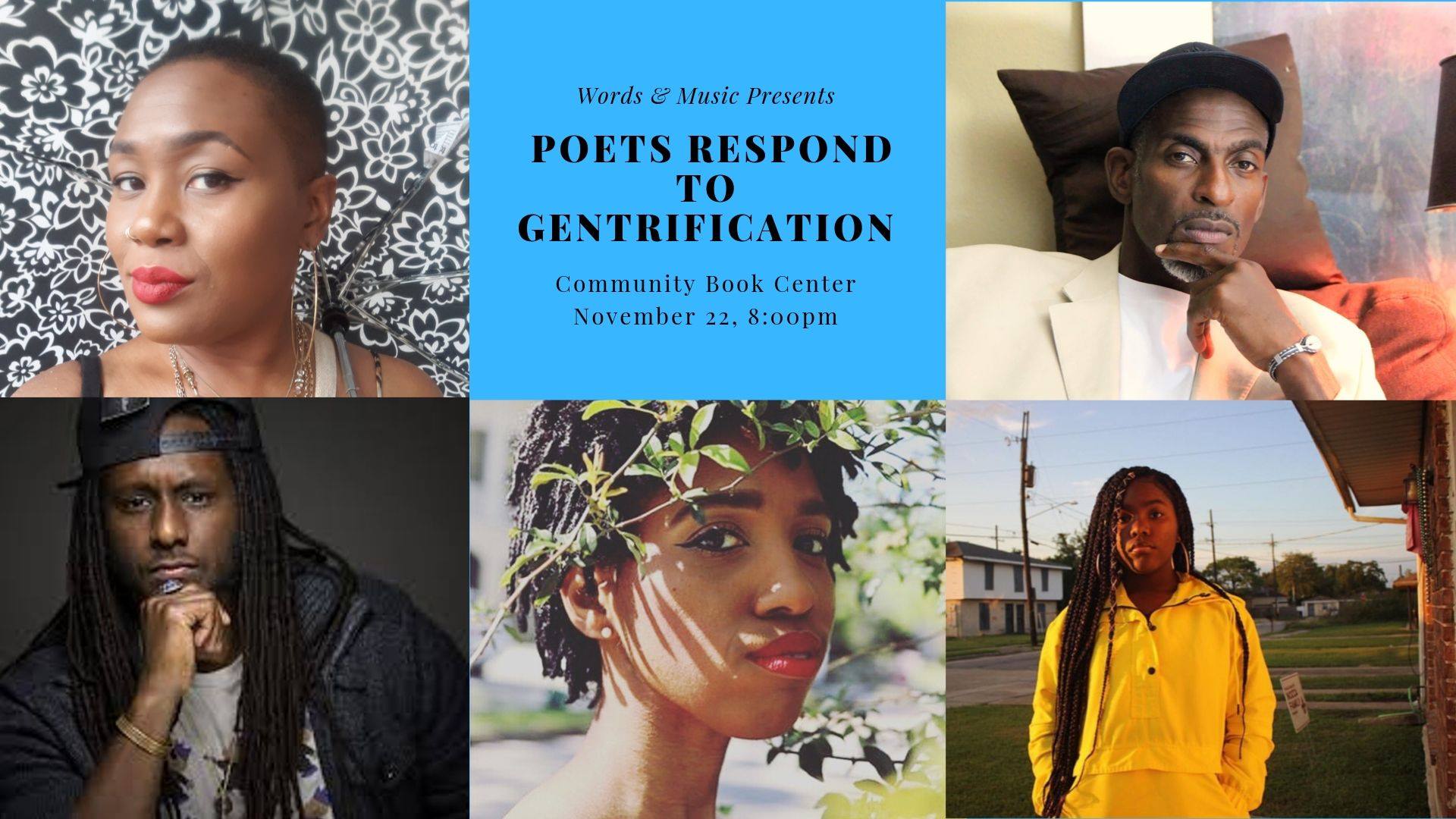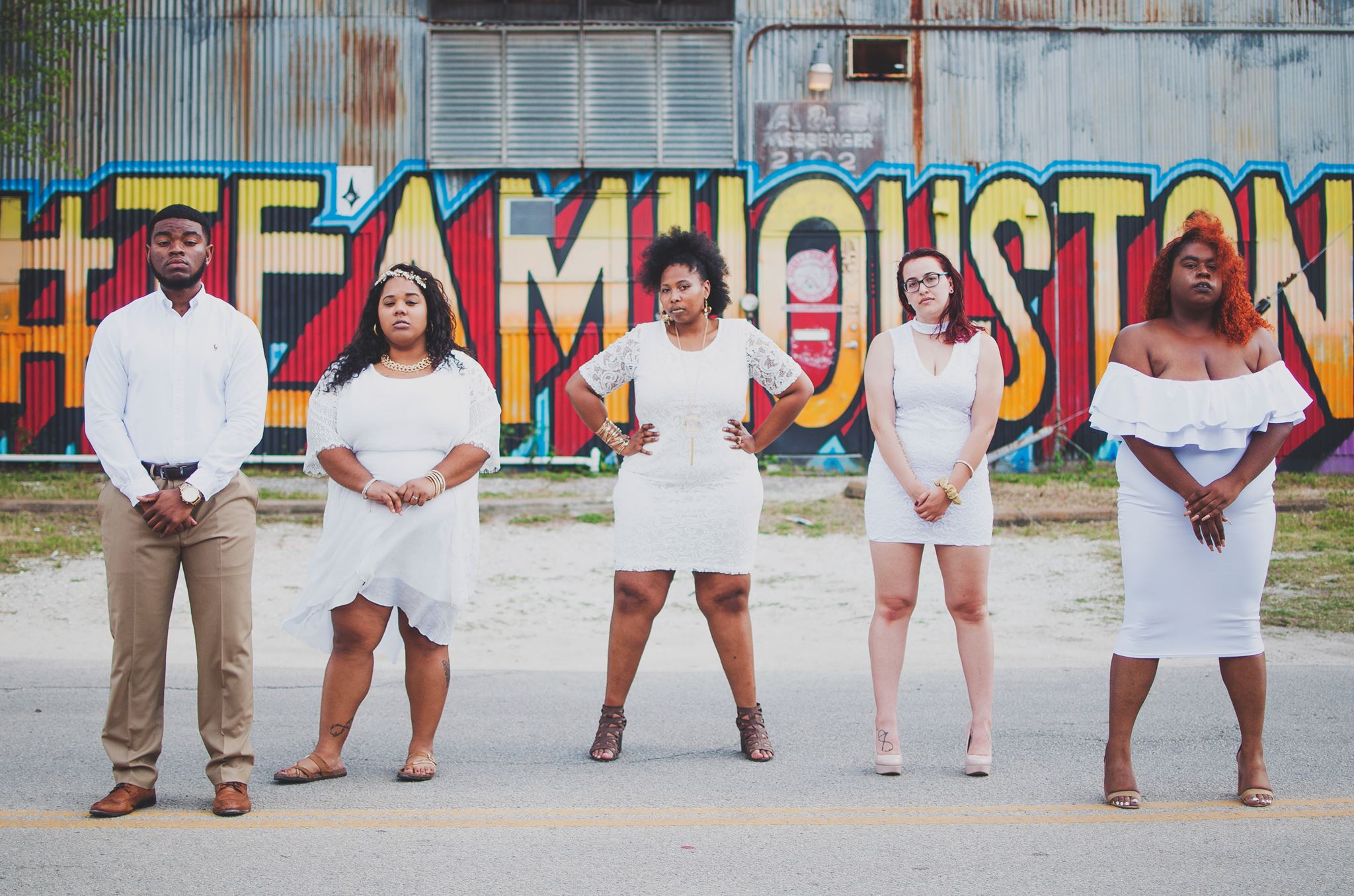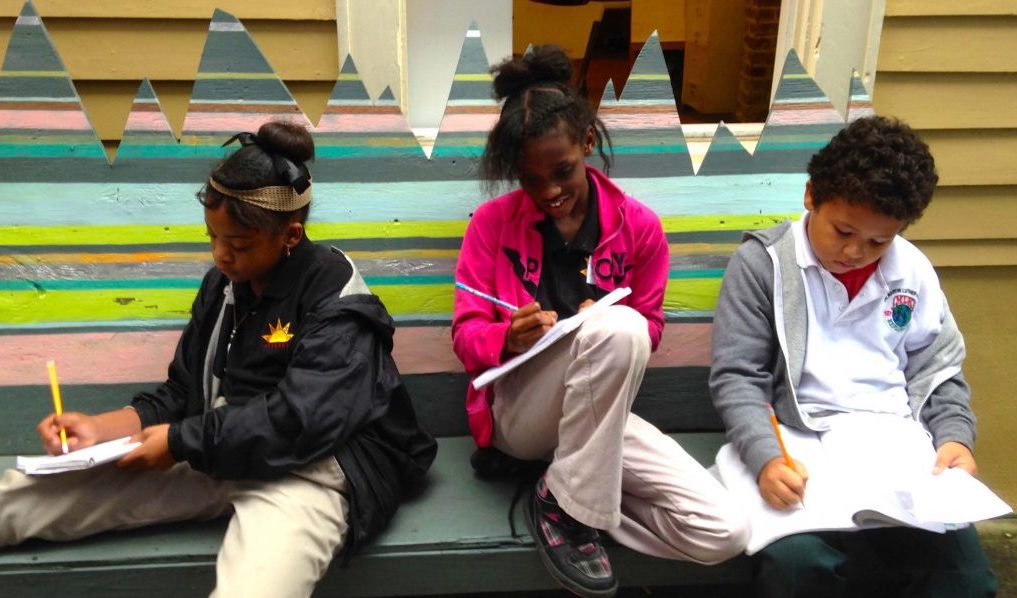In New Orleans, you don’t have to be an adult to hone your skills and find a literary community. Youth writers are thriving and preparing to lead the next generation of New Orleans writers.
Here are a few places where young writers can find resources and adults can hear some amazing youth writers share their work:
N.O.Y.O.M.: The New Orleans Youth Open Mic was started in the spring of 2014. N.O.Y.O.M. is open to seventh through twelfth grade students in the Greater New Orleans area and provides a stage and space for young people to explore themselves and share their experiences with their peers through writing. N.O.Y.O.M. partners with the Ashé Cultural Arts Center, which hosts their shows on the third Wednesday of the month, and the New Orleans Public Library is often on-site proving free books and additional resources for all students in attendance.
826 New Orleans: I served on the board in the early days when it was called Big Class. The 826 New Orleans Youth Writing Center has after-school programming, workshops, and field trips for young writers aged six to eighteen. It’s a beautiful space on St. Bernard Avenue with a shop full of books, including student publications, 826 T-shirts, and more.
NOCCA: New Orleans Center for Creative Arts is the local school of the arts that offers intensive instruction in culinary arts, dance, media arts, music, theatre arts, visual arts, and creative writing. Their creative writing program is robust and rigorous. I’ve taught classes there on several occasions and students are reared to enter creative writing programs in the future.
Scholastic Art & Writing Awards: The Greater New Orleans Writing Project is an affiliate sponsor that administers the Scholastic Writing Awards for Southeast Louisiana. The competition provides awards to writers in grades seventh through twelfth in our region in writing categories that include flash fiction, novel writing, personal essay and memoir, and poetry.
Can you imagine having all these resources as a writer in high school? Amazing!
Young writers at 826 New Orleans. Kelly Harris is the literary outreach coordinator for Poets & Writers in New Orleans. Contact her at NOLA@pw.org or on Twitter, @NOLApworg.








